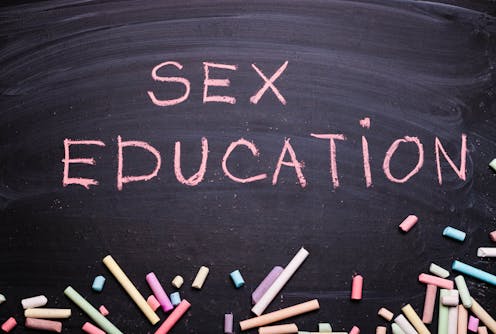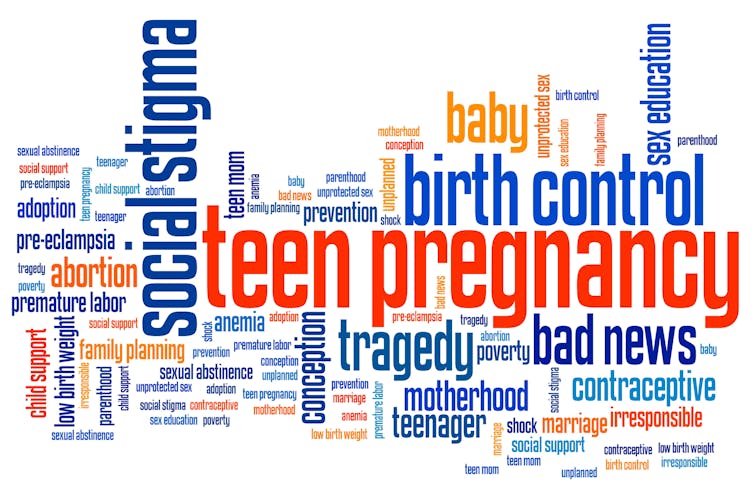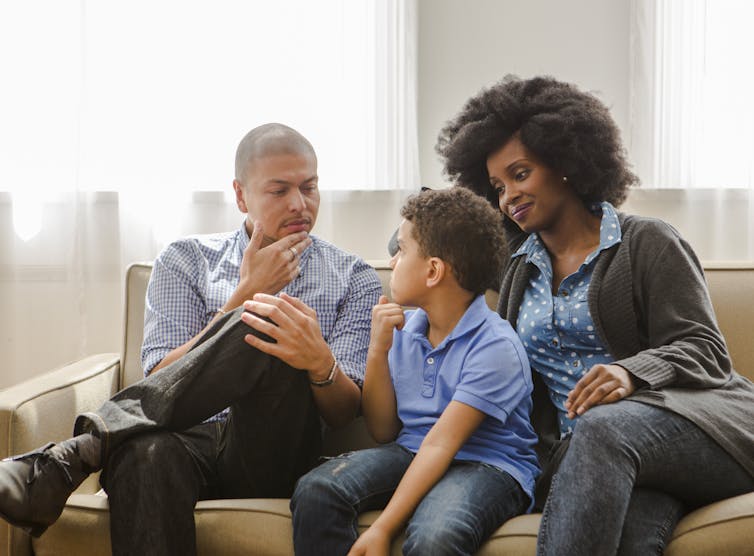Parents who oppose sex education in schools often don’t discuss it at home
- Parents who oppose comprehensive sex education in schools often don’t discuss it at home, despite claiming that sex education should only be taught at home.
- The Trump administration’s directive to remove gender-identity materials from California’s sex education lessons has led to a broader shift towards limiting what schools can teach about sexuality, with many states imposing similar restrictions.
- A national survey found that parents who opposed comprehensive sex education were less likely to discuss health-promoting concepts such as consent, contraception, and healthy relationships at home, suggesting a gap between expert recommendations and parental practice.
- The absence of structured, accurate education on sex and sexuality has implications for public health, with many communities facing high rates of teen pregnancy, sexually transmitted infections, and depression among LGBTQ+ youth.
- Policymakers, school boards, and communities should weigh parental input and public health data when making decisions about sex education, as the benefits of inclusive sex education, such as lower rates of depression and bullying, are particularly critical for LGBTQ+ youth.

Public battles over what schools can teach about sex, identity and relationships, often framed around “parental rights,” have become more intense in recent years.
Behind the loud debate lies a quiet contradiction. Many parents who say sex education should be taught only at home don’t actually provide it there, either.
As a scholar of sex education, I found that parents strongly opposed to comprehensive sex education in schools were the least likely to discuss health-promoting concepts such as consent, contraception, gender identity and healthy relationships. I discuss similar themes in my book, “A Modern Approach to the Birds and the Bees.”
Comprehensive sex education delays sexual activity, increases contraceptive use and reduces teen pregnancy and sexually transmitted infection rates. It has a complex history, but has long received bipartisan support.
In recent years, however, old debates over sex education and funding have taken a sharper turn.
In June 2025, the Trump administration ordered California to remove gender-identity materials from sex education lessons or risk losing over US$12 million in federal funding.
This directive is part of a broader shift. Since the early 1980s, abstinence-focused policy has existed at the federal level under Reagan with the Adolescent Family Life Act. In recent years, however, a wave of state-level legislation, often driven by conservative advocacy groups, has tried to limit what schools can teach about sexuality.
The parents’ rights movement
In 2023, Florida expanded its Parental Rights in Education, also known as the “Don’t Say Gay” law, to extend limits on discussing sexual orientation and gender identity to all K–12 grades. The law states that sex can be defined only as strictly binary, limits discussions of gender and sexuality, imposes rules on pronoun use and increases school board authority over curricula.
Other states, including Texas, Oklahoma, Louisiana and Kentucky, have imposed similar restrictions.

tupungato/iStock via Getty Images
Local school boards in states such as Florida, Idaho, Tennessee and Utah have removed textbooks, cut health courses and banned books with LGBTQ+ themes. Conservative, local school boards are reshaping sex education nationwide even though the vast majority of Americans oppose efforts to restrict books in public schools and are confident in public schools’ selection of books.
Who’s having the talk?

diane39/iStock via Getty Images
As laws limit teaching about sex, gender and identity, I wanted to explore whether parents are stepping in to fill the gaps.
About 10% of the surveyed parents said sex education should happen only at home. Those parents were also most likely to say they “almost never” or “never” discussed sex, sexuality and romance with their children.
By contrast, parents who supported comprehensive, school-based sex ed were significantly more likely to discuss subjects including consent, contraception, identity and healthy relationships at home.
The survey also found that parents who opposed comprehensive sex education were more likely to believe commonly circulated misinformation, such as the idea that talking about sex encourages early sexual activity and that condoms are not effective.
These preliminary findings align with a robust body of peer-reviewed literature suggesting that parents who are more resistant to school-based sex ed are also less likely and less equipped to have open, informed conversations at home.
These findings point to a gap between expert recommendations and what parents do.
At the federal level, the Trump administration slashed funding for comprehensive sex education. The administration also expanded funding for abstinence-only programs, despite evidence of their ineffectiveness.
Risks rise without education

redhumv?E+ via Getty Images
A 2022 report from Common Sense Media found that nearly half of teens report learning about sex online, with pornography among the top sources.
Research indicates that even when schools and families avoid topics related to sexuality, young people still encounter sexual content. Yet, advocacy groups such as Moms for Liberty support the removal of what it considers “age-inappropriate” or “sexually explicit” materials from classrooms and school libraries.
The absence of structured, accurate education likely has implications for public health. According to the CDC, individuals ages 15 to 24 account for nearly half of all new sexually transmitted infections in the U.S.
Mississippi, Alabama and Arkansas have some of the highest teen birth and sexually transmitted infection rates. Yet, these states are also among those with the most restrictive sex education policies and poorest sex ed ratings.
These communities also face higher poverty, limited health care access and lower educational attainment. The combination deepens health disparities.
LGBTQ+ youth are especially vulnerable to sexually transmitted infections and related health challenges. This vulnerability is compounded in regions with limited access to inclusive education.
A 2023 CDC report found that students who receive inclusive sex education feel more connected to school and experience lower rates of depression and bullying. These benefits are especially critical for LGBTQ+ youth.
As debates over sex education continue, I believe it’s important for policymakers, school boards and communities to weigh parental input and public health data.
![]()
I am the author of the book, "A Modern Approach to the Birds and the Bees" which I mentioned in the article and do benefit from its sale.
